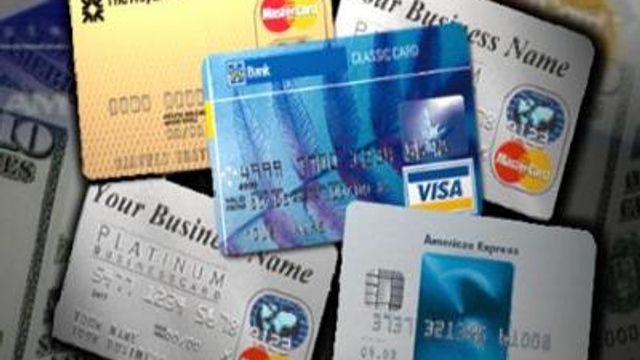Can canceling credit cards hurt your credit score?
The economy has many people slimming down their credit cards and eliminating ones they don't use or need. But can that hurt your credit score?
Posted — UpdatedWith banks tightening up credit, it's more important than ever to have an excellent credit score, especially if you are planning to buy a house.
It used to be that 720 and above was considered excellent. Now, you may need 750 just to be sure. It has people concerned about doing anything to hurt their scores.
Higher interest rates, new annual fees, like so many other credit card holding consumers, Barbara Lyon says enough is enough.
“I thought it was outrageous,” she said.
Visa recently sent notice they were adding a $60 annual fee.
“I've never had a credit card that I've had to pay an annual fee to, and so I thought I'm not gonna start now. I don't need the card,” Lyon said. “But I knew it might affect my credit score if I canceled it, so that's when I started asking questions.”
So what are the ramifications, if any, to closing an account? Five on Your Side went straight to the experts, Fair Isaac Corporation or FICO, the organization that calculates credit scores, and consumer credit counselor Rebekah O'Connell with Triangle Family Services.
“History is the largest part of your overall credit score. Thirty five percent is, ‘Did you pay your accounts on time?’ So if you have a completely paid off account and that's a good reference, then you'd like to have that good reference continued,” O'Connell said.
O'Connell says if you have other accounts that have a long, good history, then closing one account probably won't impact that part of your score, but there's something else to consider.
“The other part of the credit score that's a large part is how much of your credit limit you have used. So if you have one card that is maxed out and one that is paid off, and you close the paid off account, all you have is maxed out credit, and that can definitely drop your score,” she said.
That's known as the "utilization rate," or the balance of your card divided by the credit limit.
For example, say you have three credit cards, each with a $10,000 limit. One has a $6,000 balance. The others have $0. Your utilization rate is 20 percent. But if you close those two zero-balance accounts, your utilization rates jumps to 60 percent, which is not good.
O'Connell says you don't want your rate to go above 30 percent. If closing an account will not have a large impact on your "utilization rate," then there is no hard and fast answer.
“It really is much about the budget. If you have two or three cards and they're all carrying very low balances, then you may indeed find that it's not worthwhile to keep a card with a $75 fee,” she said.
That's the case for Lyon.
“I did not need that card, so it didn't bother me canceling it and I understand now that my credit score won't go that low,” she said.
Your credit score impacts more than your ability to get credit. It can also effect how much you pay for insurance. And prospective employers check it and can use it as a determining factor for hiring or not hiring you.
• Credits
Copyright 2024 by Capitol Broadcasting Company. All rights reserved. This material may not be published, broadcast, rewritten or redistributed.





